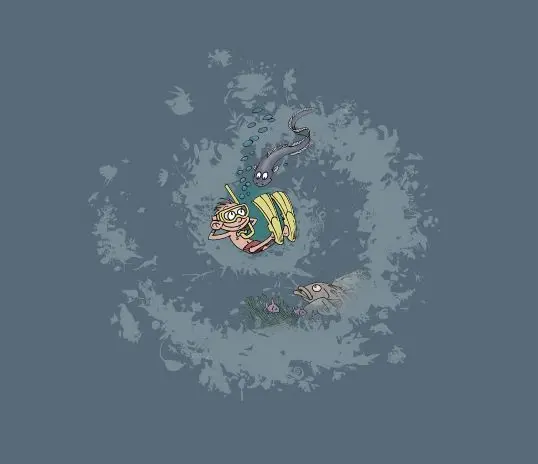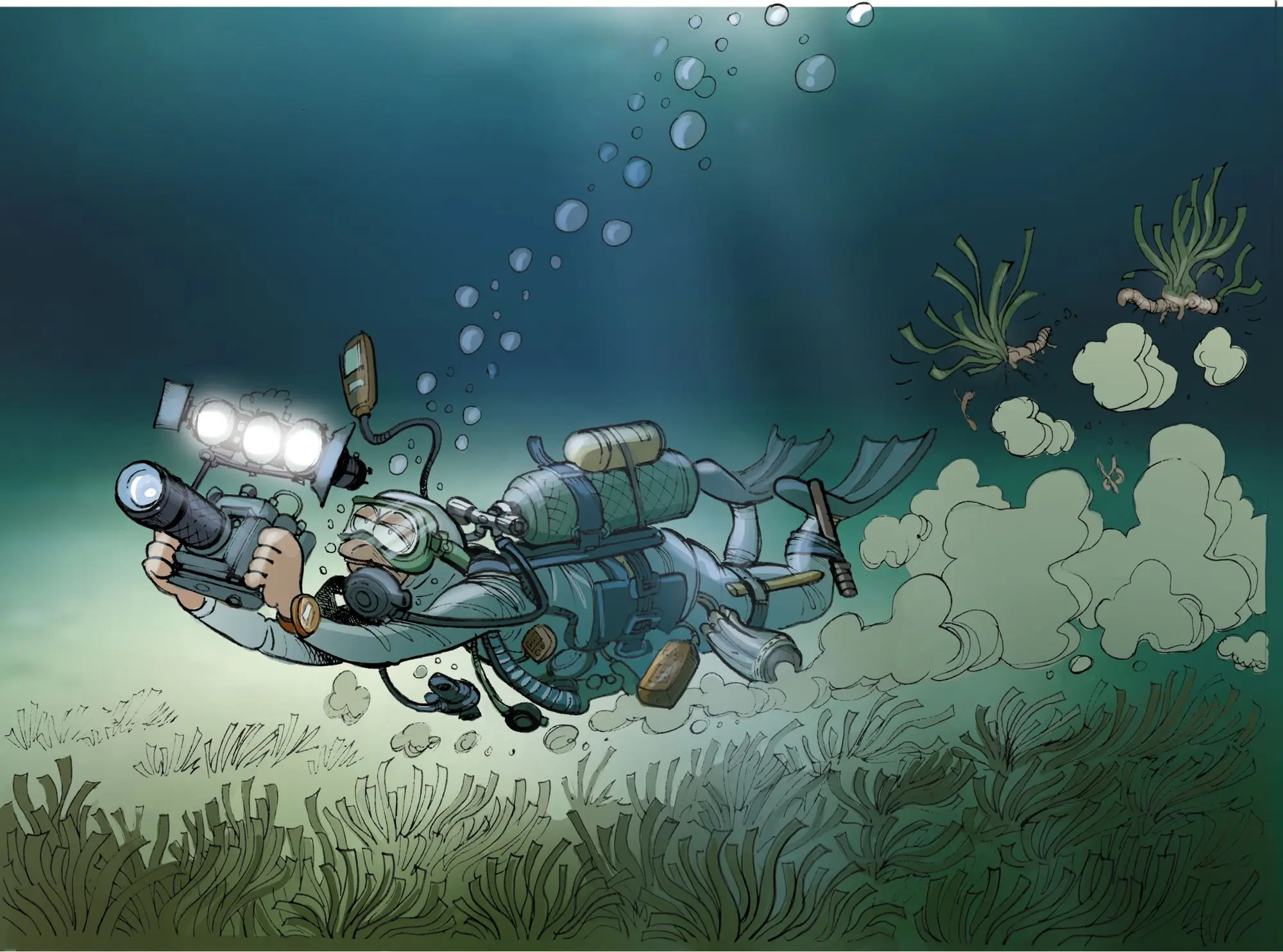Information and regulations
Information
Because diving remains a high-risk activity.
General regulations
In France, the regulations governing diving are set out in the Sports Code.
The Maritime Prefect is responsible for regulating scuba diving and freediving.
Consult the regulations specific to each municipality.
Regulations specific to the core areas of Port-Cros National Park
A national park is an exceptional area which is open to everyone, but for which each individual is responsible. The area around the islands of Port-Cros and Porquerolles is protected by specific regulations on traffic, anchoring, diving, and recreational fishing.
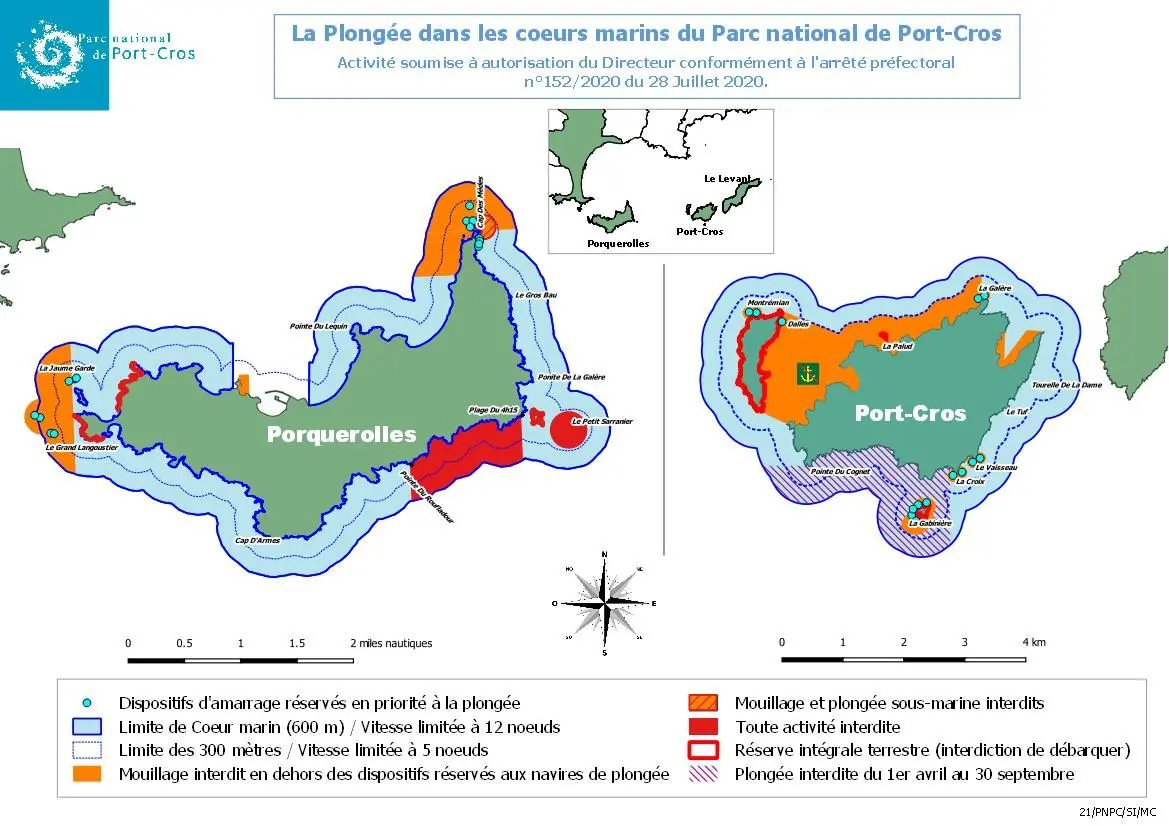
Anchoring
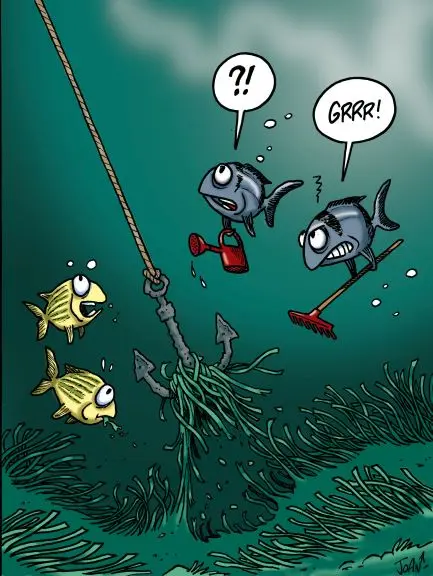
Help protect endagered sites and preserve Mediterranean flora and fauna by respecting the marine environment when anchoring.
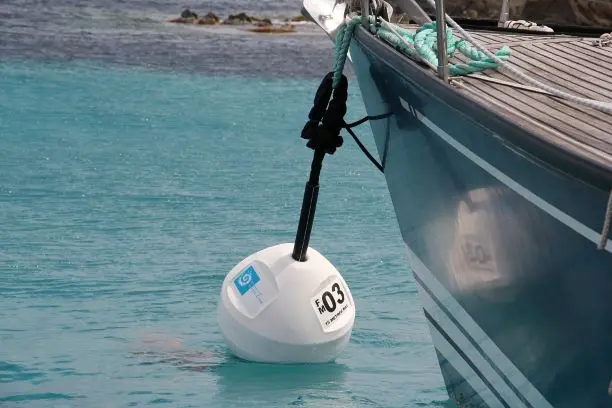
The Bagaud Mooring and Light Equipment Area (ZMEL).
To avoid setting anchor on Posidonia meadows and coralline vegetation, use the DONIA mobile.
Are you receiving us loud and clear?
1/5 Setting sail
I control my speed and slow down to less than 12 knots when within 600 metres of the coast, then to less than 5 knots when within 300 metres of the coast. I take great care to maintain a distance of more than 150 m from fishing indicators set by small-scale fishers, from divers, swimmers and light craft (kayaks, paddleboards, windsurfers, etc.).
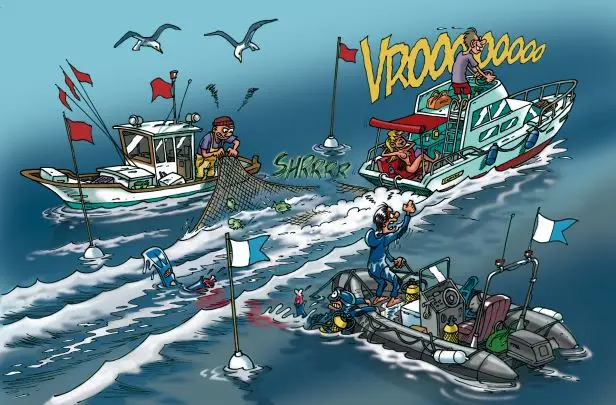
2/5 In the core of the Park (less than 600 m from the coast)
I check the on-board sailing instructions for regulations that apply in my location. I don't tow equipment, I keep the volume down if I'm listening to music, I don't set foot on meadows or in rocky shallows and I use the authorised channels when beaching. I don't enter areas where motorised vehicles are prohibited.
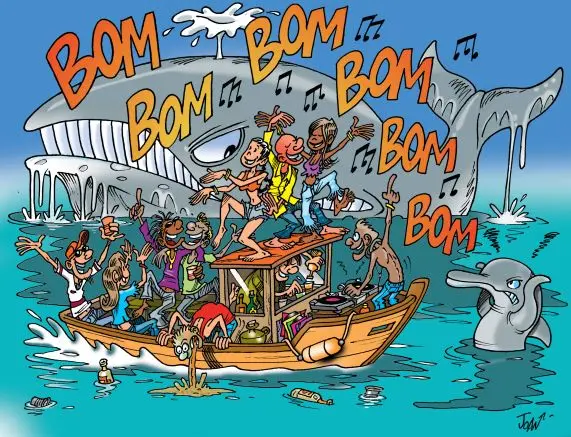
3/5 Taking a break
Before stopping, I check the sailing instructions to see if I can anchor or if I must moor at a specific facility (Bagaud Mooring and Light Equipment Zone). I always choose a sandy area to anchor so as not to damage the seabed. I don’t moor to “diving buoys” unless I am a scuba diver. I don't feed any animals (birds, fish, etc.). I don't throw away rubbish or waste water, I don't use toxic products to clean my boat, and I take care with the oil and fuel in my engine.
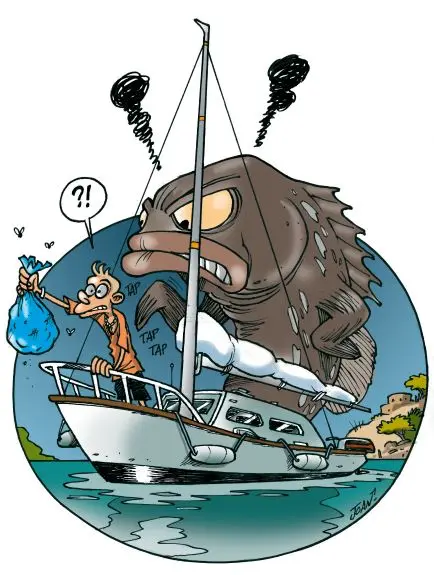
4/5 Fishing
Before setting off, I check the DIRM and DDTM websites or the Park offices for updated regulations. I respect the zones, opening dates, quantities and minimum sizes of species defined in the regulations. I do not target protected species (groupers, corbs, sea urchins from 15 April to 1 November, octopuses in summer, etc.), and immediately return any that I catch accidentally. I contact the staff in charge of environmental policing if I have any questions.
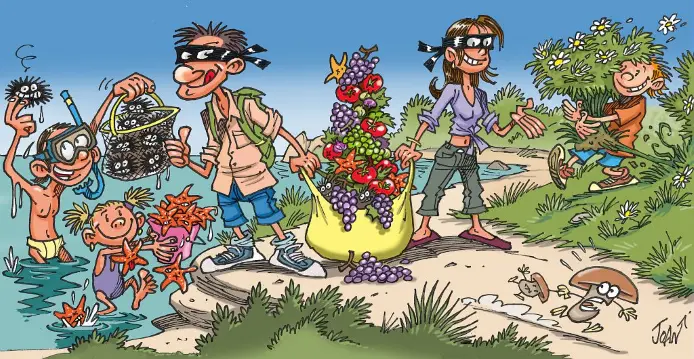
5/5 Together
We are always courteous. We provide assistance to vessels and people in difficulty. We respect all sea users. We are all responsible for the exceptional environment in which we live. The sea is a free space, but it is also regulated because it is for everyone.
